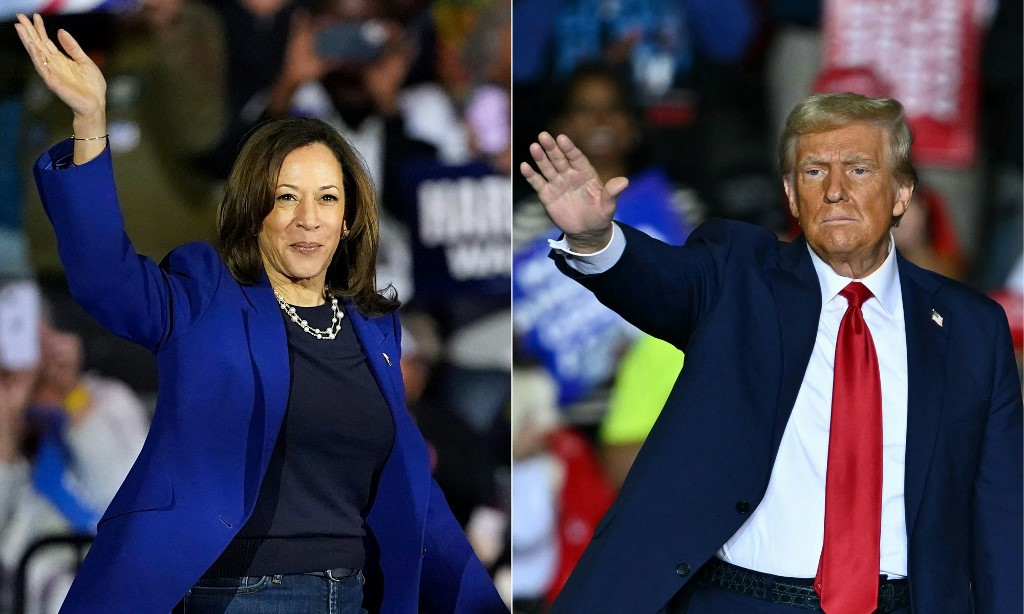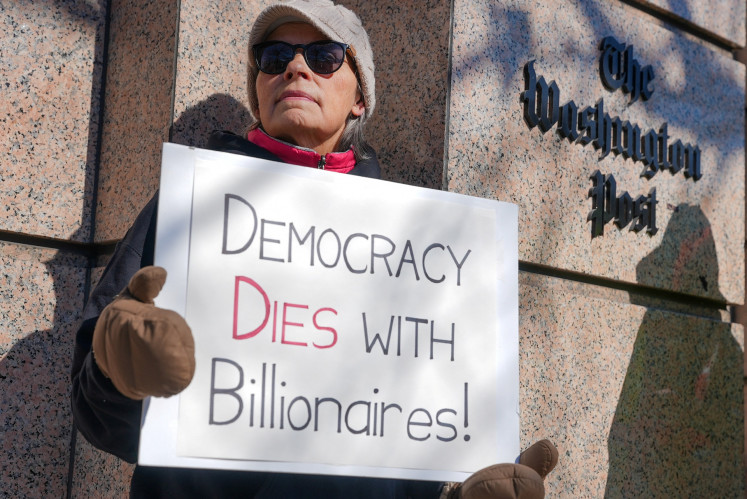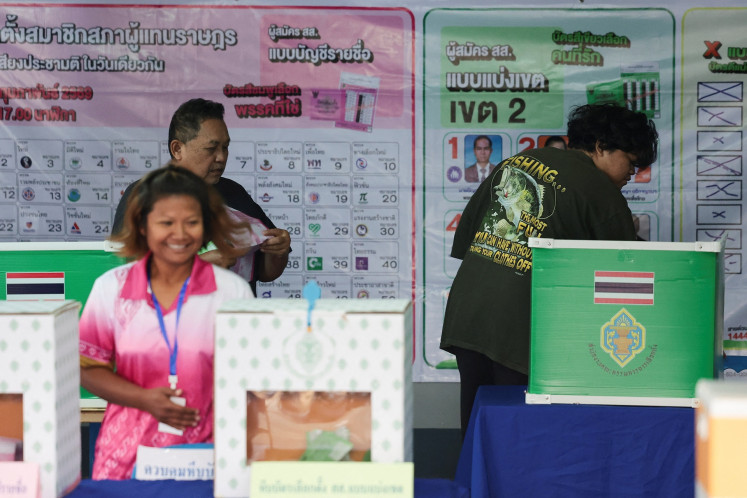Popular Reads
Top Results
Can't find what you're looking for?
View all search resultsPopular Reads
Top Results
Can't find what you're looking for?
View all search resultsWhat if the US election ends in a Trump-Harris tie?
While not highly likely, such an outcome remains possible, tormenting Americans already perched painfully on the edge of their seats ahead of the November 5 election.
Change text size
Gift Premium Articles
to Anyone
 This combination of pictures created on November 01, 2024 shows
US Vice President and Democratic presidential candidate Kamala Harris (left) walks on stage as she arrives for a campaign rally at Reno Expo Center in Reno, Nevada, US on October 31, 2024, and former US President and Republican presidential candidate Donald Trump (right) greets the audience after speaking at a campaign rally at the PPL Center in Allentown, Pennsylvania, on October 29, 2024. (AFP/LOREN ELLIOTT and ANGELA WEISS)
This combination of pictures created on November 01, 2024 shows
US Vice President and Democratic presidential candidate Kamala Harris (left) walks on stage as she arrives for a campaign rally at Reno Expo Center in Reno, Nevada, US on October 31, 2024, and former US President and Republican presidential candidate Donald Trump (right) greets the audience after speaking at a campaign rally at the PPL Center in Allentown, Pennsylvania, on October 29, 2024. (AFP/LOREN ELLIOTT and ANGELA WEISS)
S
o what exactly happens if neither Kamala Harris or Donald Trump achieves the Electoral College majority required to win the US election?
While not highly likely, such an outcome remains possible, tormenting Americans already perched painfully on the edge of their seats ahead of the November 5 election.
Under the US system, it is not the national popular vote that decides who becomes president, but a 538-member "Electoral College," in which each state gets as many "electors" as their representation in Congress.
Every state except Nebraska and Maine award all of their electors to whomever comes first in the state-wide popular vote.
If both Harris and Trump fail to reach the majority threshold of 270 electors, the US Constitution says that Congress would play a deciding role.
Specifically, the newly elected House of Representatives would select the president in January, while the Senate would designate the next vice president.
Several possible scenarios could produce a 269-269 Electoral College split.
One example would occur if Democrat Harris prevails in the states of Wisconsin, Michigan and Pennsylvania, while the Republican former president carries Georgia, Arizona, Nevada and North Carolina, plus a single left-leaning district in Nebraska.
200 years
A tie would force a so-called contingent election in Congress -- something which has never happened in modern American history.
The last time a tie forced Congress to pick the president was in the 1800 election, which pitted Thomas Jefferson against incumbent president John Adams.
Lawmakers in a badly divided House struggled mightily to agree, finally selecting Jefferson on their 36th ballot.
The excruciating muddle led to the adoption four years later of the 12th Amendment to the US Constitution, to somewhat clarify procedures around the election.
This time, if such a House vote should be necessary, it would take place on January 6, 2025.
How would that vote proceed?
One state, one vote
"Each state, regardless of population, casts a single vote for President in a contingent election," according to the Congressional Research Service (CRS).
In other words, Republican-leaning Wyoming with its city-sized population of 500,000 would have the same influence as Democratic California, where 39 million people live.
Though the US capital city Washington has three Electoral College votes, it would not get a vote in a contingent election, as it is not a state.
States with two or more representatives would need to hold an internal vote to determine which candidate to support, a CRS report said.
A candidate needs to win a majority of the 50 states, or 26 votes. At present, that would likely give Republicans the edge.
Specific rules to govern the process would likely have to be adopted by the House, potentially leading to intense disagreements and a protracted period of constitutional crisis.
It is not hard to imagine how such a process, at the end of a razor-close campaign, would weigh on the already badly frayed nerves of American voters, many of whom are convinced that the vote has been rife with irregularities.









